#Alloy 400 and Hastelloy C
Text
Difference Between Alloy 400 and Hastelloy C
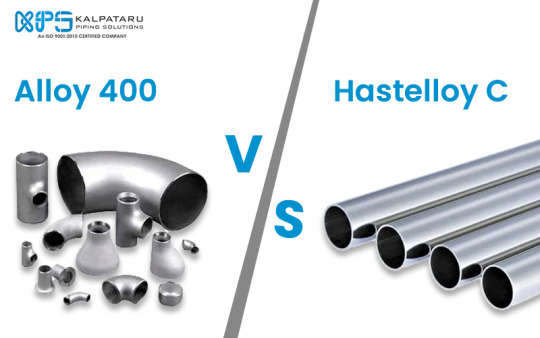
Industries such as aerospace, chemical processing, and petrochemicals depend greatly on corrosion-resistant alloys to guarantee the longevity and strength of their equipment. Two prominent alloys in the market, namely Alloy 400 and Hastelloy C, have earned a reputation for their exceptional resistance to corrosion and proven performance in challenging conditions. Although both are favoured, they possess distinct properties that might impact the decision-making process. In this blog post, we will explore the disparities between Alloy 400 and Hastelloy C, offering valuable insights to assist you in making an informed selection.
What is the Difference Between Alloy 400 and Hastelloy C?
Corrosion-resistant alloys play a crucial role in sustaining the reliability and durability of equipment in various industries, including aerospace, chemical processing, and petrochemicals. Among the top contenders in this domain are Alloy 400 and Hastelloy C, two alloys that have garnered widespread recognition for their exceptional performance in harsh environments. In this blog post, we will delve into the dissimilarities between these two alloys across various aspects to help you make an informed choice for your specific application.
Composition:
Alloy 400, also known as Monel 400, is a nickel-copper alloy with a composition primarily comprising nickel (63-70%) and copper (20-29%). Additionally, it contains small amounts of iron, manganese, carbon, and silicon. On the other hand, Hastelloy C is a family of alloys that primarily consist of nickel, molybdenum, and chromium, with varying proportions based on the specific grade (e.g., Hastelloy C276). The distinct compositions of these alloys lay the foundation for their contrasting properties.
Corrosion Resistance:
Both Alloy 400 and Hastelloy C excel in corrosion resistance, making them highly suitable for applications in aggressive and corrosive environments. Alloy 400 exhibits exceptional resistance to various corrosive agents, including seawater, acids, and alkalis. This attribute makes it a preferred choice for marine applications and equipment exposed to brine solutions. On the other hand, Hastelloy C, with its high molybdenum and chromium content, offers superior resistance to a broader range of corrosive media, including sulfuric acid, hydrochloric acid, and chloride solutions. Therefore, Hastelloy C is often favoured in chemical processing and petrochemical industries where exposure to harsh chemicals is common.
Strength:
In terms of strength, Hastelloy C generally outperforms Alloy 400. The molybdenum and chromium content in Hastelloy C contributes to its higher strength and excellent mechanical properties, providing enhanced performance at elevated temperatures. In contrast, Alloy 400 possesses lower strength compared to Hastelloy C but maintains good ductility, making it suitable for certain applications that require formability and ease of fabrication.
Cost:
Due to its nickel and copper composition, Alloy 400 is relatively more cost-effective compared to the various grades of Hastelloy C, which contain higher amounts of nickel, molybdenum, and chromium. The cost difference between these alloys can be a critical factor when choosing the appropriate material for a specific project, especially when considering the scale and budget constraints.
Application:
The choice between Alloy 400 and Hastelloy C often hinges on the specific application requirements. Alloy 400 finds widespread use in marine engineering, chemical equipment, and the aerospace industry due to its excellent resistance to seawater and various acids. On the other hand, Hastelloy C is preferred for applications involving strong acids, harsh chemical environments, and high-temperature conditions. It is extensively utilized in chemical processing, pollution control, and oil and gas industries.
Other Differences:
Apart from the key differences mentioned above, Alloy 400 exhibits magnetic properties, whereas Hastelloy C is non-magnetic. This magnetic characteristic of Alloy 400 can be significant in certain applications where magnetic interference needs to be considered.
Conclusion:
In conclusion, both Alloy 400 and Hastelloy C are formidable contenders in the realm of corrosion-resistant alloys. The choice between these alloys should be guided by the specific requirements of your application. If cost-effectiveness, good corrosion resistance, and ease of fabrication are paramount, Alloy 400 could be the ideal choice. However, if your application demands exceptional corrosion resistance in aggressive chemical environments and high-temperature settings, Hastelloy C might be the more suitable option. Always consider the specific composition, mechanical properties, and cost implications to make an informed decision that aligns with your project’s needs.
Learn More About: Heat Treatment of Copper and Copper Alloys
#Alloy 400#Hastelloy C#Difference Between Alloy 400 and Hastelloy C#Alloy 400 vs Hastelloy C#Alloy 400 and Hastelloy C
0 notes
Text
Your Guide To Essential Pharmaceutical Production Metal Fittings

The pharmaceutical industry is built on tight rules and regulations where precision and control are non-negotiable. Every stage or step in the manufacturing process, from raw ingredient handling to final packaging, requires meticulous attention to detail. One important element of this controlled environment is the use of essential pharmaceutical production metal fittings. These fittings play an essential role in ensuring the purity, consistency, and safety of medicines manufactured.
Why do Metal Fittings Matter in the Pharmaceutical Process?
In pharmaceutical production, even minor contamination can have life-threatening consequences. Unlike their plastic counterparts, metal fittings offer superior durability, high-temperature resistance, and a smooth, non-porous surface. This minimizes the risk of bacterial growth, product degradation, and chemical reactions that could impact the efficacy or safety of medications. Additionally, high-quality metal fittings can withstand the rigorous cleaning and sterilization procedures employed in pharmaceutical manufacturing.
Understanding Pharmaceutical Grade Metal Fittings
Not all metal fittings are created equal. Pharmaceutical applications demand a specific type of fitting known as Bioprocessing Equipment (BPE) fittings. These fittings adhere to strict industry standards set by organizations like the American Society of Mechanical Engineers (ASME) BPE standard and the International Organization for Standardization (ISO) 1127.
BPE fittings are designed to:
1. Minimize dead space: This reduces the risk of product stagnation and potential contamination.
2. Facilitate cleaning and sterilization: Smooth surfaces and crevice-free designs allow for thorough cleaning and sterilization processes.
3. Maximize liquid flow efficiency: Optimized designs minimize flow restrictions and ensure consistent product flow.
4. Maintain aseptic conditions: The use of high-quality materials and leak-proof connections minimizes the risk of contamination from the environment.
Common Materials for Pharmaceutical Metal Fittings
Several metal alloys meet the stringent requirements for BPE fittings in pharmaceutical production. Here are some of the most commonly used pharma metal fittings:
1. 316L Stainless Steel: The most widely used material due to its excellent corrosion resistance, high strength, and cleanability.
2. Hastelloy C-22: A nickel-chromium-molybdenum solid solution that offers superior resistance to highly corrosive chemicals and is often used in demanding applications.
3. Monel 400: A nickel-copper alloy 400 solid solutions well-suited for environments with high chloride concentrations and acidic conditions.
4. Tantalum: A high-performance material offering exceptional corrosion resistance but at a significantly higher cost.
Types of Pharmaceutical Metal Fittings
A diverse range of BPE fittings caters to the various needs of pharmaceutical production pipelines. Here are some essential types:
1. Tubes and Pipes: Form the backbone of the piping system, transferring liquids, gases, and other materials throughout the production process.
2. Bends and Elbows: Allow for directional changes in the piping layout.
3. Reducers and Increasers: Connect pipes of different diameters.
4. Unions and Couplings: Allows easy connection and disconnection of pipes for maintenance and cleaning.
5. Butterfly Valves: Control the flow of fluids within the system.
6. Clamps and Flanges: Provide secure connections and facilitate pipe sealing.
Benefits of Using High-Quality Pharmaceutical Metal Fittings
1. Improved Product Quality: Reduces the risk of contamination, ensuring the purity and consistency of medications.
2. High Production Efficiency: Minimizes downtime associated with leaks or equipment failure.
3. Reduced Maintenance Costs: Durable construction ensures longer service life and fewer maintenance needs.
4. Compliance with Regulations: Ensures adherence to stringent pharmaceutical manufacturing regulations.
Online Fittings: Your Trusted Supplier of Pharmaceutical Metal Fittings
Essential pharmaceutical production metal fittings are much more than just connecting components. They are important contributors to the safety and efficacy of medications. By understanding the types, materials, and benefits of BPE fittings, you can make informed decisions that ensure a successful and compliant pharmaceutical manufacturing operation.
At Online Fittings, we understand the critical role BPE fittings play in pharmaceutical production. We offer a comprehensive selection of high-quality BPE metal fittings from leading manufacturers, all compliant with industry standards. Our team of experts can help you choose the right fittings for your specific needs and ensure you have the reliable components needed to maintain a safe and efficient production process.
0 notes
Text
Dependable performance in challenging conditions with the help of Inconel 625 fasteners
Hot forged fasteners manufacturer in India to satisfy various industrial requirements. To create high-quality fasteners, these producers use cutting-edge forging techniques and rigorous adherence to quality standards.

For large or customised requirements, purchasing your preferred Inconel 625 fasteners straight from the manufacturer is a good option. Not every manufacturer, meanwhile, is able to provide medium-volume customised fasteners. For instance, Werkstoff 2.4856 flat washers typically have a two-week lead time. It may take 15 to 20 days for delivery. These bolts' and the 625 Inconel dowel pins' temperature tolerance are advantageous for engineering applications as well. Their resistivity and fabricability accommodate a range of requirements.
For all of our components, we use precise dimensional tolerance and premium production techniques. The Mill Test Certificates (MTCs) for Hastelloy C276 fastener bolts display the quality profile, which includes the chemical composition, mechanical attributes, and tests carried out. Additionally, it lists the product's standards—in this example, an ASTM F468 UNS N10276 threaded rod. A radiography report and a raw materials certificate are examples of additional paperwork. Buyers have the option to commission a third-party inspection or request certain tests.For all of our components, we use precise dimensional tolerance and premium production techniques. The Mill Test Certificates (MTCs) for Hastelloy C276 fastener bolts display the quality profile, which includes the chemical composition, mechanical attributes, and tests carried out.
Titanium fasteners manufacturer in India Extreme temperatures are no match for this material's solid reputation of withstanding embrittlement. Industrial customers can select the screw, bolt, rod, stud, and other design that best fits their requirements. Ti alloy washers are also used in oil refineries, chemical processing, defence, and related fields. They are extremely important for dental equipment and tooth implants due to their inherent biocompatibility.Extreme temperatures are no match for this material's solid reputation of withstanding embrittlement.
A popular and adaptable grade of stainless steel pipe, stainless steel 304 pipe is For pipe fittings, producers usually select one of the following production processes: The process of forging involves heating, forming, and machining the raw material into the necessary forms and sizes. Larger fittings are better suited for open-die forging, whereas intricate components are better suited for closed-die forging.
Hastelloy C276 flanges have many benefits that make them necessary. Good resistance to corrosion (pitting, intergranular corrosion, stress-induced cracking, and crevice corrosion) Because of the low carbon content, it is easily machined. Cutting is simple and doesn't generate excessive heat. heightened power Good formability and ductility oxidation-resistant up to 1250°C.
These nickel-copper flanges are strong, resistant to corrosion, and suitable for a range of temperatures. Monel 400 flanges are utilised in the presence of corrosive media and exhibit exceptional strength. One of the main goals is to withstand saltwater (which moves quickly) and hydrofluoric acid, an abrasive substance that can be difficult to control. Typically, these flanges are utilised in maritime applications and petroleum processing.
0 notes
Text
Suppliers of nickel alloys are important
These alloys are widely used in many different industries, including chemical processing, aerospace, and maritime. Nickel alloy supplier offer a variety of compositions and qualities to suit various applications, all while guaranteeing quality and dependability under demanding circumstances. Engineering and technology are developed in many different disciplines substantially aided by their ingenuity and understanding.
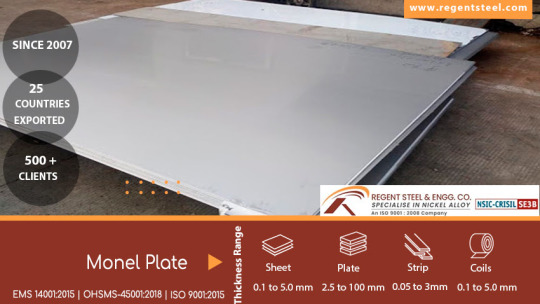
Its suitability for nuclear and marine applications stems from its resilience to extreme temperatures and tremendous stress, both in and out of the water, as well as its ability to fend against corrosion in very acidic settings. Inconel plates Suppliers with a large assortment, these companies can meet your specific requirements with sturdy, dependable products that perform well even in harsh operating conditions
These suppliers offer a large range of alternatives to Hastelloy plate suppliers that follow stringent industry standards and guidelines, ensuring optimal performance in critical applications. Since we get our supplies from reputable manufacturers and evaluate them, our rejection rate has never exceeded 0.25% during the last 15 years. Because Regent Steel is connected to some of the leading exporters of hastelloy plate from India, we offer our clients an advantage by listing everything and keeping our rates competitive.
To satisfy the wide range of client needs, these providers provide a selection of monel plate suppliers, guaranteeing dependable performance and longevity under tough circumstances.t is particularly prized for use in the maritime and chemical processing sectors due to its exceptional resistance to corrosion and temperature changes. 400, R-405, and K-500 are the three Monel alloys that are most frequently used. The mechanical qualities of R-405 and Monel 400 are similar, however because of its higher sulphur content, R-405 is simpler to machine.
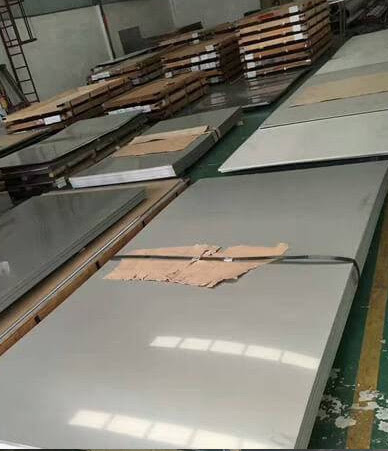
Inconel Round Bars Hot rolled bars are made in India by heating a big billet to a high temperature and then rolling it between rollers. Room temperature annealed round bars are pulled through a series of dies to create cold drawn bars. Cold drawn Inconel alloy bars have a smoother surface than hot rolled ones. Because of its controlled deformation at lower temperatures, cold drawn bars have a finer and more uniform grain structure. High-quality fastening solutions for tough applications in the chemical, marine, and aerospace industries are produced by inconel fasteners manufacturers. Extreme conditions are guaranteed to be durable and reliable due to Inconel's remarkable resistance to corrosion and high temperatures. In order to guarantee the best performance and safety, these manufacturers provide a wide selection of Inconel fasteners that adhere to strict quality standards. In industries where high thermal strength and resistance to corrosion are essential, The nickel-chromium alloy Inconel 625 tube is renowned for its exceptional fabricability and high strength. The material has a cryogenic to 982 °C service temperature range and provides good corrosion resistance. The inconel 625 tubes don't need to precipitate harden because they are made of niobium and molybdenum. Additionally, the rust resistance qualities are improved in a variety of situations by this combination.
0 notes
Text
Elbow 90 Stockists
We have earned presumed name in making of Elbow (90°) which is developed with the best of the materials accessible in the business sector. Stainless steel, composite steel and carbon steel and so forth are utilized for manufacturing this elbow. We give these funnel fittings at business sector driving ratesSPECIFICATION
Size:
1/2"NB TO 48"NB IN
Schedule:
SCH20, SCH30, SCH40, STD, SCH80, XS, SCH60, SCH80, SCH120, SCH140, SCH160, XXS
Type:
Seamless
ERW
Welded
Fabricated.
Material Type:
Stainless Steel
Alloy Steel
Carbon Steel
Nickel Alloys
Duplex
Grades :
Nickel Alloy:
ASTM / ASME SB 336 UNS 2200 ( NICKEL 200 ), UNS 2201 (NICKEL 201 ), UNS 4400 (MONEL 400 ), UNS 8020 ( ALLOY 20 / 20 CB 3, UNS 8825 INCONEL (825), UNS 6600 (INCONEL 600 ), UNS 6601 ( INCONEL 601 ), UNS 6625 (INCONEL 625), UNS 10276 ( HASTELLOY C 276 )
Stainless Steel:
ASTM / ASME SA 403 GR WP "S" / "W" / " WX" 304 , 304L, 304H, 304N, 304LN, 309, 310H, 316, 316H, 317, 317L, 321, 321H, 347, 347 H.
Duplex Steel :
ASTM / ASME SA 815 UNS NO.S 31803, S 32205, S 32550, S 32750, S 32760.
Alloy Steel :
ASTM / ASME A 234 WP 1, WP 5, WP 9, WP 11, WP 12, WP 22, WP 23, WP 91.
Carbon Steel:
ASTM / ASME A 234 WPB, WPC
ASTM / ASME A 860 WPHY 42, WPHY 46, WPHY 52, WPH 60, WPHY 65 & WPHY 70.
0 notes
Text
Exploring the World of Nickel Alloys: What You Need to Know
Welcome to the fascinating world of nickel alloys! If you've ever wondered about the shiny, versatile metals used in various industries worldwide, then this blog post is for you. These alloys are not only durable and corrosion-resistant but also play a crucial role in modern technology and innovation. Let's dive into what makes nickel alloys so special and why they're essential materials in today's industrial landscape.
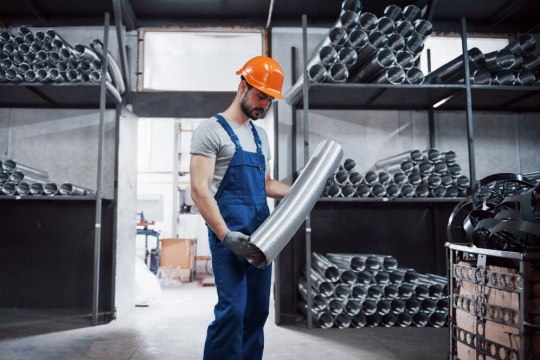
Advantages and Applications of Nickel Alloys
When it comes to using this alloy, there are numerous advantages that make them a popular choice in various industries. One of the main benefits is their exceptional resistance to corrosion and high temperatures, making them ideal for applications where strength and durability are essential.
This alloys are widely used in the aerospace industry for components such as turbine engines and aircraft structures. Their ability to withstand extreme conditions makes them crucial for ensuring safety and reliability in aviation.
In the medical field, this alloy play a vital role in manufacturing surgical instruments, implants, and medical devices due to their biocompatibility and resistance to bodily fluids.
The oil and gas industry also heavily relies on nickel alloys for equipment exposed to harsh environments like offshore drilling rigs. Their corrosion resistance helps prolong the lifespan of critical components in this sector.
The versatility of this alloy makes them indispensable across a wide range of industries where performance under demanding conditions is non-negotiable.
Common Types of Nickel Alloys
When it comes to nickel alloys, there are several common types that are widely used in various industries. One of the most popular ones is Nickel 200, known for its excellent resistance to corrosion and high thermal and electrical conductivity.
Another common type is Nickel 201, a low-carbon variant of Nickel 200 that offers similar properties but with improved ductility and lower carbon content.
Inconel alloys are also commonly used, offering outstanding oxidation resistance at high temperatures and excellent mechanical strength. Inconel 600, Inconel 625, and Inconel 718 are some well-known variations.
Monel alloys, such as Monel 400 and Monel K-500, are highly resistant to corrosion by acids and alkalis. These alloys find applications in marine engineering due to their exceptional strength.
Hastelloy alloys like Hastelloy C-276 exhibit great resistance to a wide range of chemical process environments including strong oxidizers. These versatile nickel-based superalloys are favoured in harsh industrial settings for their reliability.
Factors to Consider Before Choosing a Nickel Alloy
When selecting a nickel alloy for your project, there are several factors to consider. Think about the specific environment in which the alloy will be used. Will it be exposed to high temperatures, corrosive chemicals, or extreme pressures? Understanding the conditions will help you choose the right nickel alloy that can withstand these challenges.
Another crucial factor is the desired properties of the final product. Different nickel alloys offer varying levels of strength, ductility, and resistance to heat and corrosion. Assessing these requirements will guide you towards selecting an alloy that best suits your needs.
Cost is also a significant consideration when choosing a this alloy. While some alloys may offer superior performance, they might come at a higher price point. Balancing quality with affordability is key in making an informed decision.
Don't forget about availability and support from a reputable alloy’s supplier. Ensure that you can easily source the required materials and receive any necessary technical assistance throughout your project's lifespan.
Maintenance and Care for Nickel Alloys
Maintenance and care for these alloys are essential to ensure their longevity and performance. Regular cleaning with a mild detergent and water can help remove dirt and grime without causing damage to the alloy's surface. Avoid using abrasive cleaners or harsh chemicals that can scratch or corrode the nickel alloy.
To prevent tarnishing, it is recommended to dry the nickel alloy thoroughly after cleaning. Applying a coat of metal polish specifically designed for nickel alloys can help maintain its luster and protect it from oxidation. Inspecting the alloy periodically for any signs of wear or corrosion is also important in preventing further damage.
Storing these alloys in a cool, dry place away from direct sunlight can help preserve their appearance and structural integrity. Additionally, avoiding exposure to extreme temperatures or humidity levels can prevent potential degradation of the alloy over time. Regular maintenance routines will not only keep your nickel alloys looking great but also extend their lifespan significantly.
Innovative Uses of Nickel Alloys in Various Industries
This alloy have found innovative applications across a wide range of industries, thanks to their exceptional properties and versatility. In the aerospace industry, nickel alloys are used in aircraft engines due to their high temperature resistance and corrosion protection. These alloys help enhance engine performance and durability while withstanding extreme conditions.
In the medical field, nickel-based materials are utilized for orthopaedic implants and surgical instruments. Their biocompatibility and strength make them ideal for long-term use within the human body. Additionally, in the automotive sector, nickel alloys play a crucial role in manufacturing components that require excellent heat resistance and mechanical strength.
Furthermore, the oil and gas industry rely on this alloy for equipment subjected to harsh environments such as deep-sea drilling operations. The outstanding resistance to corrosion makes these materials essential for ensuring safety and efficiency in extracting resources from challenging locations.
Conclusion: The Future of Nickel Alloys in Technology and Beyond
Nickel alloys have proven to be versatile and reliable materials with a wide range of applications across various industries. As technology continues to advance, the demand for nickel alloys is expected to grow even further. With their exceptional properties and capabilities, nickel alloys are poised to play a crucial role in shaping the future of technology and beyond.
As we look ahead, it is clear that nickel alloys will remain at the forefront of material science, providing essential support for advancements in technology, sustainability efforts, and beyond. By staying informed about the latest developments in this field and working closely with reputable suppliers of these alloys, industries can harness the full potential of these remarkable materials for a brighter future.
0 notes
Text
Usage of Alloy 20 Instrumentation Tube Fittings
Alloy 20, also known as Carpenter 20, is a nickel-iron-chromium austenitic alloy that was developed for maximum resistance to acid attack, specifically sulfuric acid. This superalloy has excellent resistance to general corrosion, pitting, and crevice corrosion in chemicals containing chlorides and sulfuric, phosphoric, and nitric acids. It also contains niobium for stabilization against sensitization and resultant intergranular corrosion.For More Info Visit Our Site:-
0 notes
Text
What industries use fasteners?
Fasteners play a critical role in construction, manufacturing, and engineering. As a leading force in the industry, Bullion Pipes & Tubes LLP stands out as the premier fasteners manufacturer, supplier, stockist, and exporter worldwide. With an extensive range that includes Bolts, Nuts, Screws, Washers, Studs, Rivets, Self-Clinching Fasteners, and more, our commitment is to provide top-notch solutions that cater to diverse project requirements.
This blog post aims to shed light on the diverse industries that heavily rely on fasteners, emphasizing the broad spectrum of applications our products cater to.
Types of Fasteners We Offer
With us, we offer fasteners with a variety of Types and Features, including the following;
Bolts: These threaded fasteners require corresponding nuts for secure connections. Choose from an array of head styles, including hex head, socket head, and round head.
Nuts: Complementing bolts, nuts secure connections. Opt for hex nuts, lock nuts, or wing nuts based on specific application requirements.
Screws: Known for versatility, screws find use in diverse applications. Choose from different head styles like Phillips, flat, or hex, and opt for self-tapping or machine screws.
Washers: Flat and disk-shaped, washers play a pivotal role in distributing fastener loads and protecting surfaces. Types include flat, lock, and spring washers.
Studs: Characterized by threaded rods without heads on one end, studs are ideal for dual-threaded connections and situations where nuts are impractical.
Rivets: Permanent fasteners with a cylindrical shaft and deformed head create a secure connection.
Pins: Cylindrical fasteners for alignment, securing, or support, including types like dowel, cotter, and clevis pins.
Anchors: These fasteners affix objects to hard surfaces, such as concrete. Common types involve wedge, sleeve, and drop-in anchors.
Clips and Clamps: Secure items like hoses and cables using clips and clamps, such as hose clamps, spring clips, and wire rope clamps.
Threaded Rods: Lengthy straight rods with continuous threading, frequently used for hanging and providing support.
U-Bolts: Featuring a U-shaped design with threads on both ends, they secure round objects to surfaces.
Eye Bolts: Equipped with a loop or "eye," these bolts are designed for lifting and securing heavy loads.
Stud Bolts: Threaded at both ends with an unthreaded portion in the middle, commonly used in flange connections.
Self-Clinching Fasteners: Specifically designed for sheet metal and thin materials, including self-clinching nuts, studs, and standoffs.
Hinges and Latches: Serving as fasteners for attaching doors, gates, and panels, they include hinges, hasps, and latches.
Materials Wise Grade We Offer – Fasteners
At, Bullion Pipes & Tubes LLP, provides a wide variety of fasteners, including;
Copper – CDA 102, CDA 101, CDA 110
Titanium – Titanium Alloy Gr 2 & Titanium Alloy Gr 5
Monel – Monel K500 & Monel 400
Carbon Steel – ASTM A193/194 & ASME SA193/194 Carbon Steel
Brass – Alloy 260, Alloy C48200 – C48500, Alloy 385, Alloy 360, Alloy 353, Alloy 330, Alloy 272, Alloy 464
Tantalum – RO5200, RO5400, RO5252(Ta2.5W), RO5255(Ta10W)
Inconel – Inconel 718, Inconel 600, Inconel 601, Inconel 625
Aluminum – he 20 65032 6061, he 30 64430, ASTM 6061, 6063, 6351
Nickel – Nickel Alloy 200/201
SMO 254 – ASTM A 479 ASME SA 479
Duplex Steel – Duplex Steel UNS S32205, Duplex Steel UNS S31803
Hastelloy – Hastelloy C22 & Hastelloy B2, Hastelloy C276
Super Duplex Steel – Super Duplex Steel UNS S32750, Super Duplex Steel UNS S32760
Incoloy – Incoloy 800/800H/800HT, Incoloy 825
Alloy 20 – DIN 2.4460 Alloy Hexagonal Nut, Alloy 20 Bolts, UNS N08020 Alloy 20 Screws, Alloy 20 Washers
Industries Uses Fasteners
Here are some industries where fasteners are used extensively:
Construction: Fasteners such as bolts, nuts, screws, and anchors are widely used in the construction industry for connecting structural elements like beams, columns, and panels.
Automotive: The automotive industry relies heavily on fasteners for assembling vehicles. A variety of screws, bolts, nuts, and clips are used in the manufacturing of cars, trucks, motorcycles, and other vehicles.
Aerospace: Aerospace applications require precision and reliability. Fasteners play a critical role in assembling aircraft and spacecraft components, ensuring safety and structural integrity.
Manufacturing: In general manufacturing processes, fasteners are used to assemble a wide range of products across different industries, including appliances, electronics, and consumer goods.
Energy: Fasteners are used in the energy sector for assembling components in power plants, wind turbines, solar panels, and other energy infrastructure.
Shipbuilding: The shipbuilding industry relies on fasteners for assembling the various components of ships, including the hull, decks, and internal structures.
Railway: They are crucial in the railway industry for connecting rail tracks, assembling train components, and maintaining the structural integrity of railway infrastructure.
Oil and Gas: In the oil and gas industry, fasteners are used in the construction and maintenance of pipelines, platforms, and other infrastructure.
Electronics: Fasteners play a role in the assembly of electronic devices and equipment. They are used to secure components on circuit boards and in the housing of electronic products.
Medical Devices: Fasteners are used to ensure that components are held together in a precise manner in medical devices and equipment.
Furniture: In the furniture industry, fasteners such as screws, bolts, and nuts are used to assemble various types of furniture, from simple household items to complex office furniture.
Final Words!
As a global Fasteners Supplier, Manufacturer Stockist, and Exporter, Bullion Pipes & Tubes LLP takes pride in contributing to the success of diverse industries. Our fasteners, available in an array of sizes, specifications, standards, grades, materials, and types, offer versatility and reliability. Whether it's bolts, nuts, screws, washers, studs, rivets, or self-clinching fasteners, our commitment to quality ensures that our customers can confidently choose the perfect solution for their project requirements. Contact us today at [email protected] or [email protected] to explore how our fasteners can enhance the strength and durability of your applications.
0 notes
Text
High-Performance Alloys in Piping Systems: Monel 400, Hastelloy C276, Copper Nickel, and the Role of Titanium Pipe Manufacturers in India
Titanium is a relatively sought-after steel in several industries, and bicycle producers are no exception. Because of its light weight and extraordinary sturdiness, a titanium motorcycle frame can offer riders of all talent tiers with a remarkable revel in. Furthermore, the highest caliber and accuracy of titanium tube are required at the same time as constructing a titanium bike’s body.
Sealed grade 9 titanium tube is the first-class material to make use of whilst constructing a titanium motorcycle body. Your frame’s resistance to corrosion and wear will ensure that it lasts for a completely lengthy length. Additionally, the seamless creation guarantees that the frame has no possible vulnerable points.
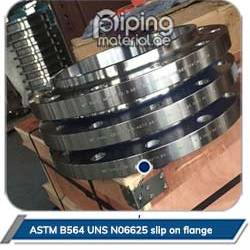
One of the principle benefits of the usage of seamless Grade nine titanium tubing is its first-rate power-to-weight ratio. Consequently, you may create a body that is sturdy and sturdy without sacrificing weight or power. For professional riders, who need a motorcycle that may navigate all terrains speedy and easily, that is crucial.
The seamless grade nine titanium tubing used to make bicycle frames also has the introduced advantage of being suitable with lots of welding strategies. It’s smooth to weld this fabric into a strong, elegant seamless body the usage of TIG or MIG welding strategies.
Building a titanium bike frame with seamless grade 9 titanium tubing ensures a long lasting, stylish, and practical ride. Therefore, in case you’re wanting to improve your motorcycle, consider buying a titanium body made completely of seamless grade nine titanium tubing. It has several benefits to offer.
Monel 400 Alloy
Pipes are unrivaled in terms of typical performance and resistance to corrosion. When exposed to gaseous fluorine, hydrochloric acid, sulfuric acid, hydrofluoric acid, and their derivatives, the Monel 400 pipes reveal notable resistance to corrosion. The alloy finds application in numerous industries, such as the chemical and maritime ones. General uses include pipelines, boiler feed water warmers, substitute warmers, drive-shafts, chemical apparatus, water and fuel storage tanks, crude oil distillation vessels, processing vessels, pipelines, and naval tools.
Hastelloy C276 metal
This Hastelloy C276 wrought nickel-chromium-molybdenum alloy happens to be the most pliable anti-corrosion alloy available. Because it does not readily form grain boundary precipitates in the heat-affected weld zone, this alloy is perfect for use in the majority of chemical processes in its welded state. Furthermore, in temperatures as high as 1900°F, Hastelloy C276 pipes exhibit exceptional resistance to oxidation, stress-corrosion cracking, and coring. Alloy C-276 keeps its exceptional resistance even when subjected to a wide variety of substances.
Copper-Nickel Pipe
The technique used to manufacture Nickel 200 flanges is vital to the final product’s efficacy and fine. Copper-nickel alloy pipes have many commercial uses due to their energy, resistance to corrosion, and warmth conductivity. We’ll talk about making copper-nickel alloy pipes here.
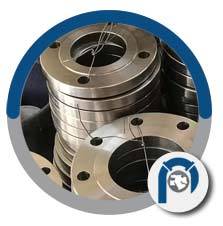
Titanium pipe manufacturers in India
Products made with titanium tubes are renowned for their outstanding mechanical properties, great strength, and light weight. Many heat exchange devices, such as transportation pipes, condensers, evaporators, coil heat exchangers, serpentine tube heat exchangers, and tube and tube heat exchangers, use it extensively. The industry standard for many nuclear power reactors is titanium tubes.
As a producer and supplier of premium titanium tubes, ASTM B564 UNS N06625 handle skinning on all tube surfaces, even if it lowers the rate of completed products and raises costs.
0 notes
Text
Exploring the Diversity of Nickel Alloys: A Guide by Apex Metal India
Nickel alloys are the unsung heroes of the materials world, offering a unique blend of strength, corrosion resistance, and versatility. At Apex Metal India, we take pride in being a Leading Importer, Supplier, and Stockist of these diverse nickel alloys, sourced from reputable European mills with valid certificates. In this guide, we'll delve into the different types of nickel alloys and their unique characteristics, shedding light on how they empower various industries.

1. Inconel Alloys - Inconel alloys are the high-temperature champions. They offer superb resistance to extreme temperatures and corrosion, making them indispensable in aerospace and gas turbine components. Apex Metal India provides various grades, including Inconel 600 and Inconel 718,and many more ensuring top-notch quality for your projects.
2. Hastelloy Alloys- Hastelloy alloys are renowned for their exceptional corrosion resistance, especially in highly aggressive chemical environments. Industries such as chemical processing and oil and gas rely on Hastelloy alloys like Hastelloy C4, C-276, etc for their critical applications.
3. Incoloy Alloys- Incoloy alloys are valued for their unique combination of strength and corrosion resistance. They find use in diverse applications, ranging from marine environments to nuclear reactors. Apex Metal India offers a range of Incoloy alloys, ensuring that you have access to materials tailored to your specific requirements.
4. Monel Alloys- Monel alloys are celebrated for their exceptional corrosion resistance, making them ideal for applications in marine and acidic environments. One of the most widely used grades is Monel 400, but Apex Metal India goes further by providing options like Monel K-500 and Monel R405, ensuring you have the right Monel alloy for your specific needs.
5. Nickel-Copper Alloys Nickel-copper alloys offer a balanced blend of strength and corrosion resistance, making them highly suitable for applications in chemical processing and marine industries. Apex Metal India provides Nickel-Copper alloys like Alloy 825 and Alloy 925, ensuring that you have access to materials that can withstand the toughest challenges.
Your Partner for Nickel Alloys
With our extensive range of nickel alloys, you gain the power to choose the perfect material tailored to your specific needs. Whether you're soaring in the Aerospace Industry, working in corrosive Chemical Environments, or Power and Energy Generation, Apex Metal India is here to provide you with the finest nickel alloys available.
Reach out today and unlock the potential of nickel alloys for your projects. Contact us now for expert guidance and top-notch materials!
0 notes
Text
Top Air Header Manufacturer in India - Arcellor Controls India
When it comes to precision engineering and top-tier quality in air header systems, Arcellor Controls India stands as the unrivaled leader in the industry. We specialize in crafting instrument air header solutions, and our commitment to excellence has earned us the reputation of being the foremost Air Header Manufacturer in India. Offering an extensive range of air headers in various sizes, specifications, standards, materials, grades, and types, we cater to diverse project needs, ensuring the highest standards for instrument air. Our global presence as an Air Header Exporter further sets us apart in the international market, making us your go-to source for superior quality and reliability in header air solutions.
Air Header
An air header refers to a component in industrial processes that is responsible for distributing compressed air to various pneumatic devices within a system. It typically consists of a manifold or a pipe system that collects and regulates the flow of compressed air from a centralized source, such as a compressor. The instrument air header ensures uniform pressure distribution and controls the direction of airflow to different branches or lines connected to it. This centralized distribution system facilitates efficient operation and control of pneumatic tools, valves, and other devices in industrial settings, contributing to the overall functionality and reliability of pneumatic systems.
Diverse Range of Air Headers:
At Arcellor Controls India, we understand that one size does not fit all. Hence, we bring forth a comprehensive range of Air Headers in various sizes, specifications, standards, materials, grades, and types. Our product line includes:
4-Way Air Header: Designed for efficiency and precision, our 4-Way Air Header is ideal for applications requiring controlled air distribution.
5-Way Air Header: With an extra outlet for enhanced versatility, our 5-Way Air Header ensures optimal performance in diverse industrial settings.
Air Header Distributor: Offering seamless distribution of air in your systems, our Air Header Distributor is a testament to reliability and durability.
12-Way Air Header With Stand: Engineered for projects demanding multiple outlets, our 12-Way Air Header with Stand provides a robust solution with added stability.
Pressure Air Header: Built to withstand varying pressure conditions, our Pressure Air Header ensures consistent performance under challenging environments.
Materials and Grades We offer - Air Header
With us, we construct the air header in various materials and grades including the following
Materials
Grades
Stainless Steel ASME B16.5
ASTM A 182, A 240 F 304, 304L, 304H, 316, 316L, 316Ti, 310, 310S, 321, 321H, 317, 347, 347H, 904L
Duplex & Super Duplex Steel ASME
ASTM / ASME A/SA 182 F 44, F 45, F51, F 53, F 55, F 60, F 61
Carbon Steel ASME B16.5
ASTM / ASME A/SA 105 ASTM / ASME A 350 , ASTM A 181 LF 2 / A516 Gr.70 A36, A694 F42, F46, F52, F60
Low-Temperature Carbon Steel
ASTM A350, LF2, LF3
Alloy Steel ASME 16.5
ASTM / ASME A/SA 182 & A 387 F1, F5, F9, F11, F12, F22, F91
Copper Alloy Steel ASME B16.5
ASTM SB 61 , SB62 , SB151 , SB152 UNS No. C 70600 (Cu-Ni 90/10), C 71500 (Cu-Ni 70/30)
Nickel Alloy ASME B16.5
ASTM SB564, SB160, SB472, SB162 Nickel 200 (UNS No. N02200), Nickel 201 (UNS No. N02201),
Monel
Monel 400 (UNS No. N04400), Monel 500 (UNS No. N05500)
Inconel
Inconel 800 (UNS No. N08800), Inconel 825 (UNS No. N08825), Inconel 600 (UNS No. N06600)
Hastelloy
Hastelloy C 276 (UNS No. N10276), Alloy 20 (UNS No. N08020)
We also offer Instrument Air Header Made from other materials like aluminum, MS (Mild Steel Grades), and more, to our customers all across the globe!
Applications of Air Header
Air Header Plays a crucial role in maintaining proper pressure and flow control within the system. Here are some applications of air headers:
Instrumentation and Control Systems
Process Control
Pneumatic Tools
Safety Systems
HVAC Systems
Laboratory Equipment
Pneumatic Conveying Systems
Automated Manufacturing
Aerospace Industry
Clean Room Environments
Other Applications
Final Words!
Selecting the optimal Air Header is paramount for the triumph of your industrial ventures, and Arcellor Controls India stands out as the premier choice for astute customers. Boasting a diverse array of top-notch Air Headers, a global presence, and an unwavering dedication to customer contentment, we consistently lead the industry. We transcend the confines of the Indian market; we have positioned ourselves as a prominent Air Header Exporter on the global stage. Our products span the globe, reaching countries including Oman, Qatar, the USA, Germany, the UK, Brazil, Turkey, UAE, Indonesia, and Saudi Arabia. We take immense pride in delivering quality solutions adhering to international standards, ensuring that industries worldwide benefit from our expertise in instrument air and header air manufacturing. Connect with us today at [email protected] to encounter excellence in Air Header production and exportation. Your success is our paramount concern!
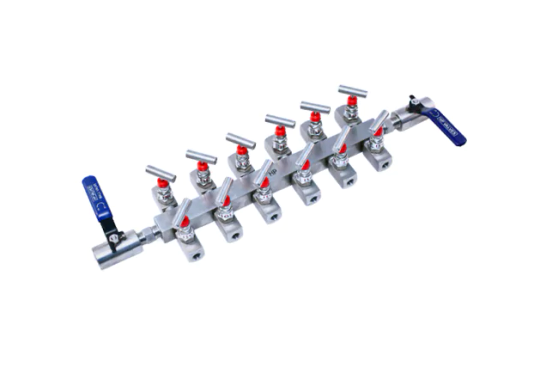
0 notes
Text
Monel 400 Stud Bolts Manufacturers In India
The foul material for the whole thing degree of Stainless Steel Hex Bolts is gotten from certified aces who fill in according to the set present day focal points. Our retrogressive trade off engages us to make the correct thought of these Duplex Steel Heavy Hex Bolts, as required by the clients. Our stringent quality controls guarantee flawless quality. While glancing around, one could without a great deal of a stretch see that, everything is settled and got together in light of these Nickel Hex Cap Screw. The accomplishment behind the developing Super Duplex Steel Hex Screws in industry is everything that is stirring up nowadays.
We offer the same in various evaluations, for example, Stainless Steel 304/304H/304L Bolts, Duplex Steel UNS S31803 and UNS S32205 Bolts, Monel 400/K500 Bolts, Inconel Bolts, Hastelloy C22 Bolts, and Alloy 20 Bolts.
https://www.chhajedfasteners.com/images/products/bolts-manufacturers-suppliers-exporters1.PNG

We offer a wide extent of this Stainless Steel Socket Cap Screw that is accessible in various sizes and estimations. Purchase Titanium Bolts in driving business division cost from us. In like way, our total thing go is changed by the finishes of the customers. A gander at the present vehicle industry will enable a man to see how these Stainless Steel Countersunk Slotted Screws in industry has given them the light weight, continuously serious, and trust excellent secure making the vehicles of today speedier and more grounded and still light in weight, than at later.
BOLTS SPECIFICATIONS
Standard
Length
Size
Type
DIN, ASTM, BS and all International Standards
3 mm to 200 mm
M3 - M56 | 3/6" to 2" | Custom Sizes
Bolts, Stud Bolts, Hex Head Bolts, Socket Hexagon Head Screw Anchor Bolt, U- Bolts, J Bolts, Mushroom Head Square Neck Bolts, T-Head Bolts, Eye Bolt, Foundation Bolts, Structural Bolts.
OTHER TYPES OF BOLTS
Stainless Steel Bolts :
AISI 302, 304, 304L,316, 316L, 310, 317, 317L, 321, 347, 410, 420,904L etc.
Duplex & Super Duplex Steel Bolts :
ASTM / ASME A815 UNS No. S31803, UNS No. S 32205, UNS No. S 31254, UNS No. S 31550, UNS No. S 32750, and UNS No. S 32760
Carbon Steel Bolts :
ASTM A307, A193
Alloy Steel Bolts :
ASTM / ASME A/SA 193 / 194 B 6, B 7/ B 7M, B 16, 2, 2HM, 2H, GR 6, B 7, B 7M
Nickel Alloy Bolts :
ASTM / ASME SB 160 / 164 / 425 / 166 / 446 / 574 / 472 UNS 2200 (NICKEL 200) / UNS 2201 (NICKEL 201), UNS 4400 (MONEL 400), UNS 8825 (INCONEL 825), UNS 6600 (INCONEL 600) / UNS 6601 (INCONEL 601), UNS 6625 (INCONEL 625), UNS 10276 (HASTELLOY C 276), UNS 8020 (ALLOY 20 / 20 CB 3)
FACTORY ADDRESS
Chhajed Steel & Alloys Pvt.Ltd. Plot No 739, Near sheetal hotel, Kalamboli, Navi Mumbai
Call: Tel - 022 - 2386 1894 / 2389 3666 / 2386 4049
EMAIL: [email protected]
#alloy 20 bolts manufacturers#alloy 20 bolts suppliers#alloy 20 fastners#alloy 20 bolts exporters#astm a 479 duplex flat washer#duplex steel bolts manufacturers#duplex steel round washer#monel 400 bolts#monel 400 fasteners
0 notes
Text
Orifice Flanges
We are worked in get-together five star need nature of Orifice Flanges The principal clarification behind a hidden Flanges is to offer interest to a line for metering of fluids or gasses. A hidden plate is squashed between several Flanges when it is being showed up in a line and the whole collecting is shown as a hole Flanges mixing. Jack-fixes the party make a short summit of the hidden plate. In the meantime, the hole plate, which is the metering contraption, joins a powerless plate by structures for a square edge, concentric, and round opening in inside point. Two weight tap-openings are other than penetrated in each Flanges for to gage weight limit totally through the hole.
Orifice Flanges are utilized as a decision of the standard line Flanges when stream spout or hole plate is utilized. The hole plate is a general scattered thing and isn't being sold as a touch of the Flanges gathering. These Flanges are for the most part utilized as a scramble of various applications industry. They are sensible in various sizes, focal centers, examinations and thickness as appeared by the client's necessities, and are proposed to driving costs in march.
Hole Flanges are utilized with Opening meters to check the stream advancement of either fluids or gases in the particular pipeline. Sets of weight "Tappings", everything thought about on 2 sides, unequivocally change one another, are machined into the hidden Flanges. This makes separate opening carriers or tappings in the line divider senseless.
Orifice Flanges Specifications:
Standards: ANSI B16.47 Series A & B, ANSI B16.5, API-605, MSS SP44, ASA, EN1092, BS 4504, DIN
Type: Orifice Flanges
Size: ½” (15 NB) to 48″ (1200NB)
Class : 150 Class, 300 Class, 400 Class, 600 Class, 900 Class, 1500 Class, 2500 Class, PN6, PN10, PN16, PN25, PN40, PN64 etc.
Material: Stainless Steel, Duplex, Super Duplex, Nickel Alloys, Alloy Steel, Carbon Steel, Low temperature Steel
Material Grade:
Stainless Steel Orifice Flanges: ASTM A 182, A 240 F 304, 304L, 304H, 316, 316L, 316Ti, 310, 310S, 321, 321H, 317, 347, 347H, 904L
Duplex & Super DuplexSteel Orifice Flanges: ASTM A182 / ASME SA182, F 44, F 45, F51, F 53, F 55, F 60, F 61
Carbon Steel Orifice Flanges: ASTM A105 / ASME SA105, ASTM A350 / ASME SA350, ASTM A181 LF 2 / A516 Gr.70 A36, A694 F42, F46, F52, F60, F65, F70
Low Temperature Carbon Steel Orifice Flanges (LTCS): Flange, A350 LF2/A350 LF3
Alloy Steel Orifice Flanges: ASTM A182 / ASME SA182 & A387 F1, F5, F9, F11, F12, F22, F91
Nickel Alloy Orifice Flanges: ASTM / ASME SB 564 / 160 / 472, UNS 2200 ( Nickel 200 ), UNS 2201 (Nickel 201 ), UNS 4400 (Monel 400 ), UNS 8020 ( Alloy 20 / 20 CB 3, UNS 8825 Inconel (825), UNS 6600 (Inconel 600 ), UNS 6601 ( Inconel 601 ), UNS 6625 (Inconel 625), UNS 10276 ( Hastelloy C 276 )
We Offer The Following Types :
Slip on threaded ring joint corner tap weld neck orifice flanges
Raised Face slip-on orifice flange manufacturers
Ring-Type joint weld neck orifice flanges
Corner tap orifice flanges
Raised Face weld neck orifice flanges
0 notes
Text
What are the different grades of forged fittings?

What is a forged fitting?
Pipe fittings made from forged carbon steel are known as forged steel fittings. The forging process is used to create very strong fittings. Carbon steel is heated to molten temperatures and inserted into dies. Forged steel fittings are then machined using the heated steel.
A wide variety of equipment is connected with forged fittings, including pumps, valves, pipes, and many others. There are two main types of these fittings, threaded fittings and socket weld fittings, which are used to connect pipes with fittings by screwing them together. In addition to being available in a variety of materials and grades, these forged fittings are widely available.
The use of forged fittings is to link pipes, pumps, valves, etc. to construct piping systems that are smaller than 2 or 4 inches in diameter.
Forged fittings are generally of two types: socket-weld fittings which are welded to pipes and threaded fittings which are screwed onto pipes.
Asme B16.11, MSS SP 75, MSS SP 83, MSS SP 95 specification covers forged fittings, both socket weld and threaded, for use with ASME B36.10 and ASME B36.19 carbon, alloy, stainless steel and nickel alloy pipes.
As per the applicable specifications, solid steel blocks are fabricated and shaped to obtain the final shape required Fitting classes indicate the maximum pressure that the device is capable of handling.
Fittings from Class 3000 are used for pipes in schedule 80/XS, Class 6000 for pipes in schedule 160, and Class 9000 fittings for pipes with larger wall thicknesses.
In Forged Fittings joints, two Forged Fittings are bolted together with a gasket between them to create a seal.
Different Grades of Forged Fittings:
Stainless Steel
Stainless steel can be used for forged fittings in a variety of ways. It has different standards, including ASTM, ASME A, and SA 182. There are many grades of stainless steel that are suitable for forging, including 304, 304L, 3034H, 309S, 309H, 309H, 316, 316H, 316L, 316LN, 310S, 310H, 317,317L, 321, 321H, 347, 347, and 904L. Also, these grades are making forged fittings perfect to use in all complex and general applications of various industrial sectors.
Duplex and Super Duplex Steel
A variety of grades of duplex steel and super duplex steel are available in standards such as ASTM and ASME A. Duplex steel and super duplex steel have different grades, such as F51, F53, F55, F44, F45, F60, and F61.
Nickel alloy
Various ASTM, ASME SB 564, 160, and 472 standards are available for nickel alloy forged fittings. There are many grades of nickel alloys, including UNS 2200 (Nickel 200), UNS 8825 (Inconel 825), UNS 4400 (Monel 400), UNS 6600 (Inconel 600), UNS 6625 (Inconel 625), UNS 6601 (Inconel 601), UNS 10276 (Hastelloy C 276), and UNS 2201 (Nickel 201). Forged fittings, all these grades can withstand a certain amount of load.
Tap here to read more about:
0 notes
Text
Suppliers of nickel alloys are important
These alloys are widely used in many different industries, including chemical processing, aerospace, and maritime. Nickel alloy supplier offer a variety of compositions and qualities to suit various applications, all while guaranteeing quality and dependability under demanding circumstances. Engineering and technology are developed in many different disciplines substantially aided by their ingenuity and understanding.
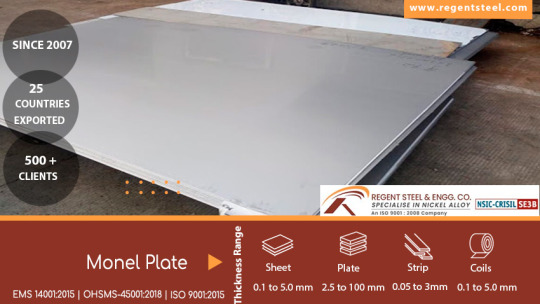
Its suitability for nuclear and marine applications stems from its resilience to extreme temperatures and tremendous stress, both in and out of the water, as well as its ability to fend against corrosion in very acidic settings. Inconel plates Suppliers with a large assortment, these companies can meet your specific requirements with sturdy, dependable products that perform well even in harsh operating conditions
These suppliers offer a large range of alternatives to Hastelloy plate suppliers that follow stringent industry standards and guidelines, ensuring optimal performance in critical applications. Since we get our supplies from reputable manufacturers and evaluate them, our rejection rate has never exceeded 0.25% during the last 15 years. Because Regent Steel is connected to some of the leading exporters of hastelloy plate from India, we offer our clients an advantage by listing everything and keeping our rates competitive.
To satisfy the wide range of client needs, these providers provide a selection of monel plate suppliers, guaranteeing dependable performance and longevity under tough circumstances.t is particularly prized for use in the maritime and chemical processing sectors due to its exceptional resistance to corrosion and temperature changes. 400, R-405, and K-500 are the three Monel alloys that are most frequently used. The mechanical qualities of R-405 and Monel 400 are similar, however because of its higher sulphur content, R-405 is simpler to machine.
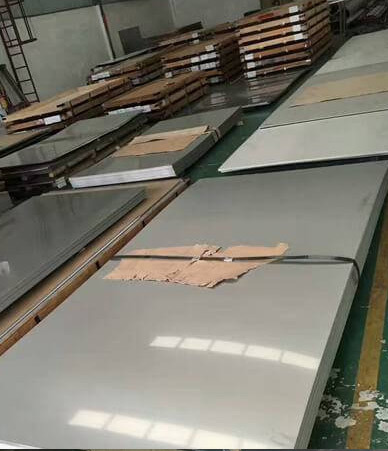
Inconel Round Bars Hot rolled bars are made in India by heating a big billet to a high temperature and then rolling it between rollers. Room temperature annealed round bars are pulled through a series of dies to create cold drawn bars. Cold drawn Inconel alloy bars have a smoother surface than hot rolled ones. Because of its controlled deformation at lower temperatures, cold drawn bars have a finer and more uniform grain structure. High-quality fastening solutions for tough applications in the chemical, marine, and aerospace industries are produced by inconel fasteners manufacturers. Extreme conditions are guaranteed to be durable and reliable due to Inconel's remarkable resistance to corrosion and high temperatures. In order to guarantee the best performance and safety, these manufacturers provide a wide selection of Inconel fasteners that adhere to strict quality standards. In industries where high thermal strength and resistance to corrosion are essential, The nickel-chromium alloy Inconel 625 tube is renowned for its exceptional fabricability and high strength. The material has a cryogenic to 982 °C service temperature range and provides good corrosion resistance. The inconel 625 tubes don't need to precipitate harden because they are made of niobium and molybdenum. Additionally, the rust resistance qualities are improved in a variety of situations by this combination.
0 notes
Text
Welded Flanges Exporters in India
We are broadly known for manufacturing and supplying an extensive variety of high quality of Welded Flanges. These flanges are welded to the end of pipe so that the pipe can be bolted to another pipe with a same flanges. Complying with the characterized parameters of the business, these offered welded flanges hold a few properties, such as,Epoxy Coating, Longer service life, Hot Dip Galvanizing, Resistance against corrosion, Dimensions stability, Compressive strength.SPECIFICATION
Size:
1/2" NB TO 60"NB.
Class:
150 LBS, 300 LBS, 600 LBS, 900 LBS, 1500 LBS, 2500 LBS DIN Standard ND-6,10, 16, 25, 40 Etc.
Nickel Alloy Socket Weld Flange:
ASTM / ASME SB 564 / 160 / 472.
UNS 10276 -HASTELLOY C 276 Socket Weld Flange
UNS 2200 -NICKEL 200 Socket Weld Flange
UNS 2201 -NICKEL 201 Socket Weld Flange
UNS 4400 -MONEL 400 Socket Weld Flange
UNS 8020 -ALLOY 20 Socket Weld Flange
UNS 8825 -INCONEL 825 Socket Weld Flange
UNS 6600 -INCONEL 600 Socket Weld Flange
UNS 6601 -INCONEL 601 Socket Weld Flange
UNS 6625 -INCONEL 625 Socket Weld Flange
Copper Alloy Socket Weld Flange:
ASTM / ASME SB 61 / 62 / 151 / 152.
C 70600 (CU -NI- 90/10)/Cupro Nickel Socket Weld Flange
C 71500 (CU -NI- 70/30)/Copper Nickel Socket Weld Flange
UNS NO. C 92200, UNS NO. C 83600, UNS NO. UNS NO C 10100,
C 10200, C 10300, C 10800, C 12000, C 12200
Duplex Steel Socket Weld Flange:
ASTM / ASME A/SA 182 UNS F 44, F 45, F51, F 53, F 55, F 60, F 61.
Stainless Steel Socket Weld Flange/SS SWRF Flange:
ASTM A182 Grade : F 304, 304L, 304H, 309S, 309H, 310S, 310H, 316, 316TI, 316H, 316L, 316LN, 317, 317L, 321, 321H, 347, 347H, 904L.
Alloy Steel Socket Weld Flange/AS SWRF Flange:
ASTM SA 182 F1/F5/F9/F11/F22/F91
Carbon Steel Socket Weld Flange/CS SWRF Flange:
ASTMA 105 Gr. F42/46/52/56/60/65/70
Low Temperature Carbon Steel Socket Weld Flange/LTCS SWRF Flange:
A350 LF2/A350 LF3, Value Added Services, Hot Dip Galvanizing, Epoxy Coating,, Test Certificate, Mill Test Certificate as per EN 10204 / 3.1Bc
0 notes